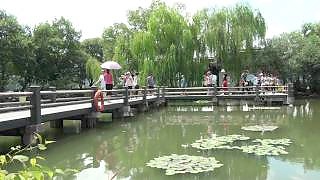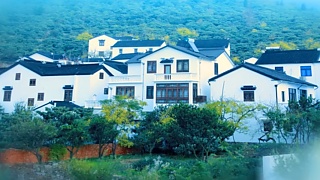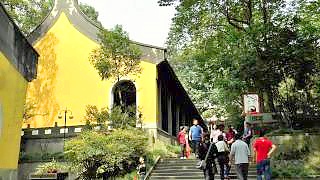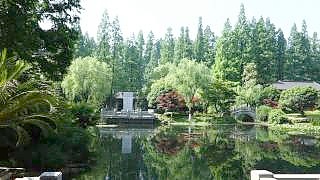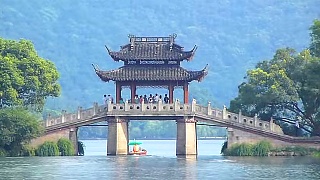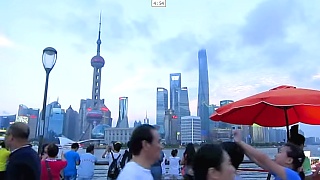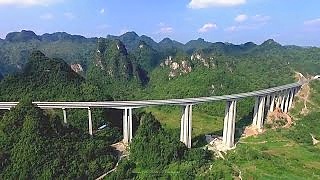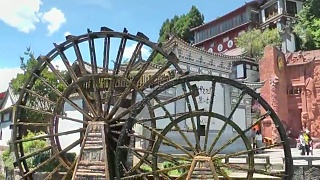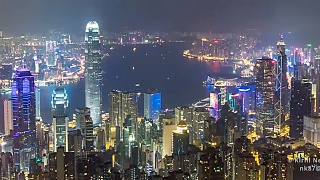With CGTN ...
[640],shadow=true,start=,stop=Bonus film - the Asian Games sports infrastructure - with Rafa Goes Around! ...
Hangzhou, the capital of Zhejiang Province in eastern China, is renowned for its historic relics and natural beauty. Located at the southern end of the Grand Canal, which extends to Beijing, Hangzhou has been one of China's most renowned and prosperous cities for much of the last millennium. Marco Polo reportedly described the city as "the finest and most splendid city in the world."
Historical Significance
Hangzhou has a rich history dating back over 2,200 years to the Qin Dynasty. It became a significant city during the Sui Dynasty when the Grand Canal was constructed. During the Southern Song Dynasty (1127-1279), Hangzhou was the capital of China, a period that significantly boosted its status and prosperity.
West Lake
One of Hangzhou’s most famous attractions is West Lake (Xī Hú). This UNESCO World Heritage site is celebrated for its scenic beauty, inspiring poets, scholars, and artists since the 9th century. The lake is surrounded by temples, pagodas, gardens, and artificial islands. Major attractions around West Lake include the Broken Bridge, Su Causeway, and Leifeng Pagoda.
Lingyin Temple
Lingyin Temple, also known as the Temple of the Soul's Retreat, is one of the largest and wealthiest Buddhist temples in China. It was founded in 328 AD during the Eastern Jin Dynasty. The temple is famous for its grand halls, numerous pagodas, and Buddhist grottoes, particularly the Feilai Feng grottoes, which contain hundreds of stone carvings of Buddhist figures.
Longjing Tea
Hangzhou is the origin of the world-famous Longjing (Dragon Well) tea. Longjing Tea Village, located in the hills west of West Lake, offers a picturesque setting where visitors can learn about tea cultivation, enjoy tea tastings, and experience traditional tea ceremonies. The tea is renowned for its high quality, green color, fragrant aroma, sweet taste, and flat leaves.
Grand Canal
The Grand Canal, a UNESCO World Heritage site, is the longest canal or artificial river in the world. Hangzhou marks the southern end of this ancient waterway, which played a crucial role in the cultural and economic development of the region. Visitors can take boat rides to explore the historical and cultural sights along the canal.
Modern Hangzhou
Today, Hangzhou is a blend of traditional and modern influences. It is an important economic hub, home to numerous high-tech industries and the headquarters of Alibaba Group, one of the world's largest e-commerce companies. The city's infrastructure is well-developed, with a high-speed railway, an international airport, and a comprehensive metro system.
Tourism and Culture
Hangzhou is a popular tourist destination, attracting millions of visitors each year. The city hosts various cultural festivals, such as the West Lake International Expo, the China International Tea Expo, and the Hangzhou International Marathon. Hangzhou cuisine, known for its light and fresh flavors, is also a highlight for visitors, with famous dishes like Dongpo Pork and West Lake Fish in Vinegar Gravy.
Hangzhou, located in eastern China's Zhejiang province, is renowned for its picturesque West Lake, traditional tea culture, and historic sites. Here's a guide for tourists visiting Hangzhou:
West Lake and Scenic Areas:
West Lake (Xi Hu): This UNESCO World Heritage Site is the centerpiece of Hangzhou's natural beauty, with its serene waters, pagodas, gardens, and surrounding hills. Visitors can take boat cruises, stroll along the lakeside paths, or rent bicycles to explore the area.
Leifeng Pagoda: Situated on the southern shore of West Lake, this historic pagoda offers panoramic views of the lake and the city skyline.
Lingyin Temple (Temple of the Soul's Retreat): One of the most important Buddhist temples in China, Lingyin Temple features ancient rock carvings, serene courtyards, and a large statue of Buddha.
Xixi Wetland Park: Explore the tranquil waterways, traditional villages, and lush greenery of this scenic wetland park, located on the outskirts of Hangzhou.
Tea Culture:
Longjing (Dragon Well) Tea Plantations: Hangzhou is famous for producing Longjing tea, one of China's most prized green teas. Visitors can tour the tea plantations in the nearby hills, learn about the tea-making process, and sample freshly brewed Longjing tea.
National Tea Museum: Learn about the history, cultivation, and cultural significance of tea in China at this informative museum located on the outskirts of Hangzhou.
Historic and Cultural Sites:
Six Harmonies Pagoda (Liuhe Pagoda): This ancient pagoda offers panoramic views of the Qiantang River and the surrounding countryside. It also houses a small museum showcasing Buddhist artifacts.
Hefang Street (Qinghefang Ancient Street): Stroll along this historic street lined with traditional shops, teahouses, and snack stalls selling local delicacies and handicrafts.
China National Silk Museum: Discover the art of silk production and the history of the silk trade in China at this museum, which features exhibits on silk weaving, dyeing techniques, and cultural artifacts.
Modern Attractions:
Hangzhou Grand Canal: Take a boat cruise along the Grand Canal, the world's longest and oldest canal, to admire the historic architecture and bustling waterfront scenes.
Hangzhou CBD (Central Business District): Explore the modern side of Hangzhou with its skyscrapers, shopping malls, and vibrant nightlife.
Practical Tips:
Transportation: Hangzhou has an extensive public transportation network, including buses, subways, and taxis. Bicycles and electric scooters are also popular options for getting around the city.
Weather: Hangzhou has a humid subtropical climate with hot, humid summers and mild, damp winters. Spring and autumn are the best times to visit when the weather is pleasant and the landscapes are at their most beautiful.
Language: Mandarin Chinese is the official language, but English may not be widely spoken outside of tourist areas. It's helpful to learn a few basic phrases or carry a translation app.
Hangzhou's blend of natural beauty, cultural heritage, and modern amenities makes it a captivating destination for tourists. Whether you're exploring historic sites, indulging in tea culture, or simply enjoying the tranquility of West Lake, Hangzhou offers a memorable experience for visitors of all interests.

 The beauty, history and culture of HangZhou, ZheJiang province
The beauty, history and culture of HangZhou, ZheJiang province







